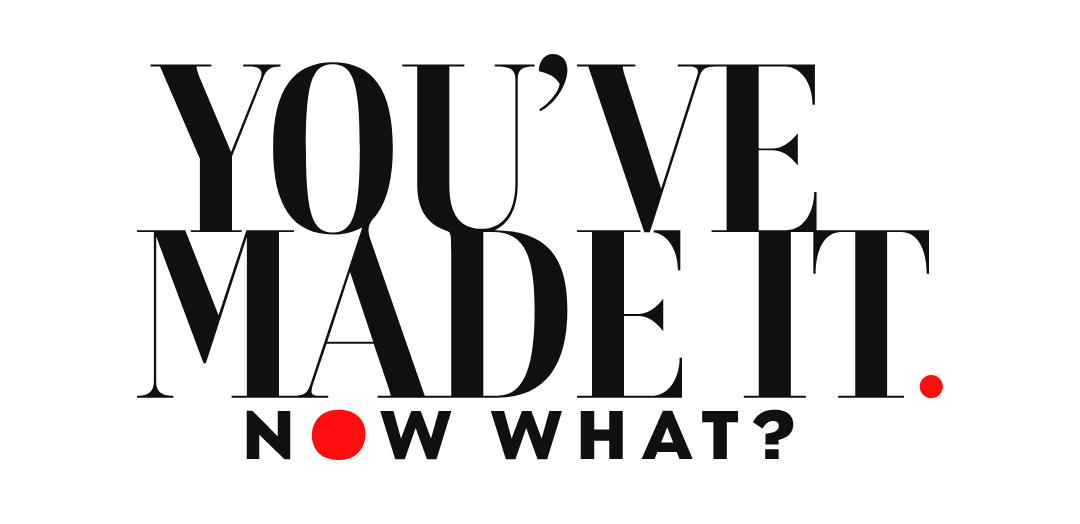Hi, my name is Nora.
For as long as I can remember, I've always been curious: Is it possible for everyone to make a living off their passions? How does it happen? Is it a privilege only for the extremely lucky or talented? Can you earn that privilege?
If you can, I want to know how.
My own story is partially what drove me to ask these questions. I was born and raised in one of the poorest regions of Hungary, in a small town of 500 people, where most are struggling to make ends meet. Growing up I didn't see or meet any entrepreneurs, or really anyone who was able to make a living off of their passion.
Then how did I end up believing that there must be more to life?
Growing up, I remember watching the Backstreet boys on MTV, Milo Ventimiglia on Gilmore Girls, The O.C. (made by the legendary Josh Schwartz) and a whole new world opened up to me. Seeing these people on TV made me realize it might actually be possible to love what you do. It was the first time it dawned on me that there's a difference between a "job" or "work" and having a true life passion, and wanted to find out what mine was.
Since my family didn’t have the money to send me to university, after high school I enrolled in a 2-year program for hospitality, and while there I took my first ever marketing class. It was a lightbulb moment. I had already known that writing and public speaking were two of my strengths, but in marketing I found a new sense of purpose and from that moment forward I knew I had found what I wanted to do.
After the program ended my focus became studying social media and working in digital marketing. But after several attempts to work a typical 9-5 I started to realize that I had a choice: I could live my life the traditional way or I could take that ultimate leap of faith and follow my true interests and passions by starting my own business.
It was clear that being an entrepreneur would give me the freedom that I needed in order to pursue multiple projects at the same time–not just interviewing, but blogging, building communities, and running my consulting business.
The year I signed the contract for my first book I also signed 5 social media clients and started my company. I took a chance and never looked back. This was 10 years ago, the same year I became a bestselling author and a national phenomenon in Hungary. I was a household name by the age of 24. By 2016 my face was on billboards and I was on the Forbes Most Influential Social Media personalities list as the only blogger.
But with the extreme highs came the ugly side of fame that I hadn’t prepared for: defamation, character assassination, a smear campaign, anonymous bullies turning my life’s work and passion into memes for others to laugh at. Their voices formed a disparaging chorus: “Who does this girl think she is? She makes money by blogging and writing cliches, what kind of a job is that? She can’t even write! She doesn’t even have a degree! How dare she?”
They were kind of right. Without social media I would never have had the opportunity to do what I love and have it reach so many people. But the world had changed, and social media had given voices to so many. Including me.
In 2016 I was invited by Arianna Huffington to start blogging for The Huffington Post. I started interviewing extraordinary people and hearing all about the real challenges they go through. I interviewed the legendary Philip Zimbardo in his home to talk about experiencing PTSD because of social media (at the time there were no hits on Google about the topic, most people were afraid to discuss it for fear of ridicule). I had the chance to talk to Jake Paul about how being publicly mocked impacted him, and Martin Garrix about how he maintains normalcy despite his extraordinary lifestyle.
These conversations were so healing, especially because back then I felt like I couldn’t speak out about the trauma fame had caused me. If I brought it up everyone brushed off my comments by saying, “Don’t complain, others would kill for what you have!” or “You knew what you signed up for!” (no, I didn’t). Feeling like I couldn’t talk about the challenges of notoriety and fame felt unfair and alienating, so I shut down for a while and acted like everything was fine.
But silencing people is not the best solution for multiple reasons. For one, it creates a false image of what success looks like. Sure, many parts of it can be wonderful and fulfilling, but the real experience is so much more complex than that. Not allowing someone to feel all the feels just because from the outside it seems like they have it all feels brutal to me. Not to mention, I have to tell you a secret: no one has it all. At the end of the day we are all just people going through life. The rest is just fluff. All the labels, titles, money, awards, the big houses don’t matter. The real deal is not success. The real deal is to not lose yourself when you get there.
I became interested in getting people to share how they’re able to keep growing and doing what they love in the face of these challenges, and I wanted to give them a platform to have open conversations about their full experience. I wanted to be able to interview everyone with an understanding, accepting, open heart, to give them the right to be human without any judgement. I wanted to create a space for anyone to open up about the good, the bad and the ugly, no matter what they’ve achieved.

